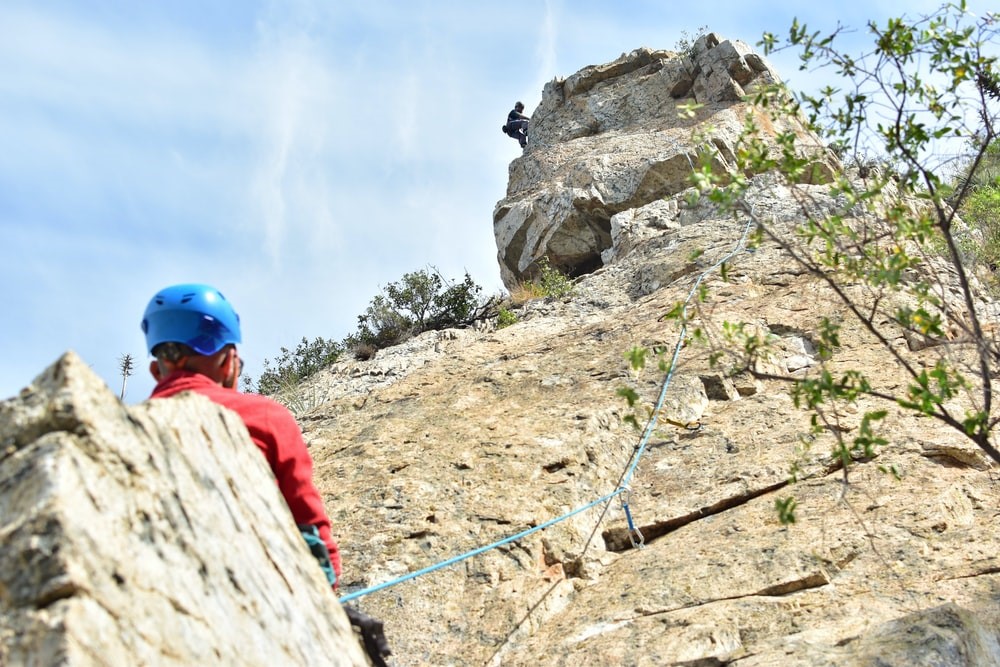“When I wake up, I am reborn.” –Mahatma Gandhi
Gandhi said this about 100 years before the brain research could validate his claim but the science is clear—good sleep habits are rocket fuel for elite performance.
The Big Idea—Sleeping enough has been scientifically linked to effective leadership behaviors, the performance of elite athletes, and possibly Alzheimer’s prevention. On the flip side, even a slight lack of sleep has effects similar to being too drunk to legally drive.
Many hard charging leaders have undoubtedly cut back on sleep during intense periods of their working lives in an effort to get more results. But science shows us that this strategy—especially over time—won’t create the gains leaders are hoping for.
Any leader serious about their performance must make sleep a top priority.
The effects of sleep deprivation
Sleep deprivation is a rite of passage for any parent.
About a year ago, my wife and I had our second child. So it has recently become clear just how poorly I function without adequate sleep.
Thankfully, my wife is much tougher than I am and has taken about 90% of this hit. She would gladly share some illustrations of my childish tantrums over the past year.
As we have struggled through this season, we often wondered how other couples kept their marriages together through sleep deprivation phases!? When both of us are depleted, things can get ugly fast.
Furthermore, when my kids turn into something that resembles an episode of The Walking Dead, any parent can tell you there is a direct correlation between sleep and the functioning of humans at any age.
Over my daughters’ crib, we have an inscription that reads—”Let her sleep for when she wakes, she will move mountains.” And leadership science shows us this may not be far from the truth—mentally and physically.
Sleep is directly linked to proven leadership behaviors
In a 2016 article by Harvard Business Review (link at bottom), researchers found that 43% of leaders said they did not get adequate sleep at least 4 nights a week.
And 96% of leaders in the study reported some degree of burnout, which is partly linked to lack of sleep. When you don’t sleep well you have heightened emotional reactivity and stress (recall my marital tantrums noted above). And this stress can worsen your sleep. It’s a vicious cycle.
Most of us can walk or eat just fine without adequate sleep, but neuroscience shows us the part of the brain that doesn’t function well without sleep is the prefrontal cortex.
And the prefrontal cortex is most responsible for 4 scientifically proven leadership behaviors—a clear orientation to results, effective problem solving, seeking different perspectives, and supporting others (according to a Harvard study of 81 organizations and 189,000 global leaders).
When you are sleep deprived, you don’t set clear goals, problem solve at your best, or react well to other people. And the authors make the point that these behaviors will affect financial performance.
Many incredible leaders throughout the ages have attributed their creative insights to great sleep habits. Most notably—Einstein, Edison, Churchill, Da Vinci, and Aristotle.
Healthy organizations and leaders would do well to encourage healthy sleep practices in their teams by having mandatory work-free vacations, setting work hour limits, setting times after which email or texts should not be sent (you can use apps for this), predictable time off, and ensuring teams in different time zones can communicate around sleep times.
Don’t drink and work
One famous study in The Journal of Occupational and Environmental Medicine showed that once you have been up for 17-19 hours, you have physical and mental impairments similar to those with a blood alcohol level of .05%.
After 20 hours awake, your impairments are on par with those at 1% BAC—beyond the legal driving limit in most countries.
If you wouldn’t slug a beer while trying to do your best work, then it’s time to get serious about the habits that will improve your sleep.
The sleep habits of Lebron James and athletic performance
In another fantastic 2017 article in Forbes, the author reported that Lebron James gets an average of 12 hours of sleep per day, while the typical American gets only 6.8 hours per day (Gallup, 2013).
If for some reason you are not familiar with Lebron James, he is widely regarded as the greatest basketball player of all time and Forbes named him the most powerful athlete in the world.
Many other world-class athletes attribute much of their performance to great sleep. ESPN has conducted several studies on this.
Good sleep habits may help prevent Alzheimer’s
In 2018, Sciencenews.org published a fascinating article entitled—The Brain May Clean Out Alzheimer’s Plaques During Sleep.
While the link is not completely clear, this article presents a wealth of studies to support the idea that good sleep habits may help prevent the accumulation of amyloid-beta plaques. These plaques have been recognized as a hallmark of Alzheimer’s dementia.
Research has shown that levels of amyloid-beta plummet during sleep, thereby suggesting that a sleeping brain may run a type of “cleaning cycle” to remove excess metabolic waste from itself.
In conclusion, sleeping more won’t automatically make anyone the next Einstein or Lebron James, but if you already have strong work habits, adding great sleep hygiene is a proven way to boost your performance and keep your brain healthy over your life and career.
Turn information into action
Here are 14 tips for better sleep:
- Aim for 7-9 hours per night. Nearly all sources support this.
- Go to bed and wake up at the same time daily. Even on weekends.
- Make sure your room is dark. Try black out curtains.
- Set an ideal temperature. Experiment with this.
- Have a wind down routine for yourself. Your kids need it and so does your brain. Also—don’t plan emotional conversations or work activities close to bedtime.
- Use a meditation app. Headspace or Calm have great sleep programs.
- Avoid screens 1 hour before bed. Screens agitate your brain. Keep electronics off or out of the bedroom.
- Exercise during the day. Exercise is good for everything including sleep.
- Limit naps to 30 minutes.
- Expose yourself to sunlight during the day.
- Limit food and fluid intake before bed.
- Avoid caffeine after mid-day.
- Limit alcohol before bed. Disrupts deep sleep.
- Application to parenting (From the book Babywise)—There is almost nothing that children need more than good sleep AND rested parents. It’s Win-Win.
Have a great weekend!
Parker
Suggested Resources
- Sleep is the new magic pill (ESPN) https://www.espn.com/nba/story/_/id/27767289/dirty-little-secret-everybody-knows-about
- This is how many hours of sleep Lebron James gets a day https://www.forbes.com/sites/brucelee/2017/06/09/this-is-how-many-hours-of-sleep-lebron-james-gets-a-day/#68ca916e79b2
- The brain may clean out Alzheimer’s plaques during sleep https://www.sciencenews.org/article/sleep-brain-alzheimers-plaques-protein




